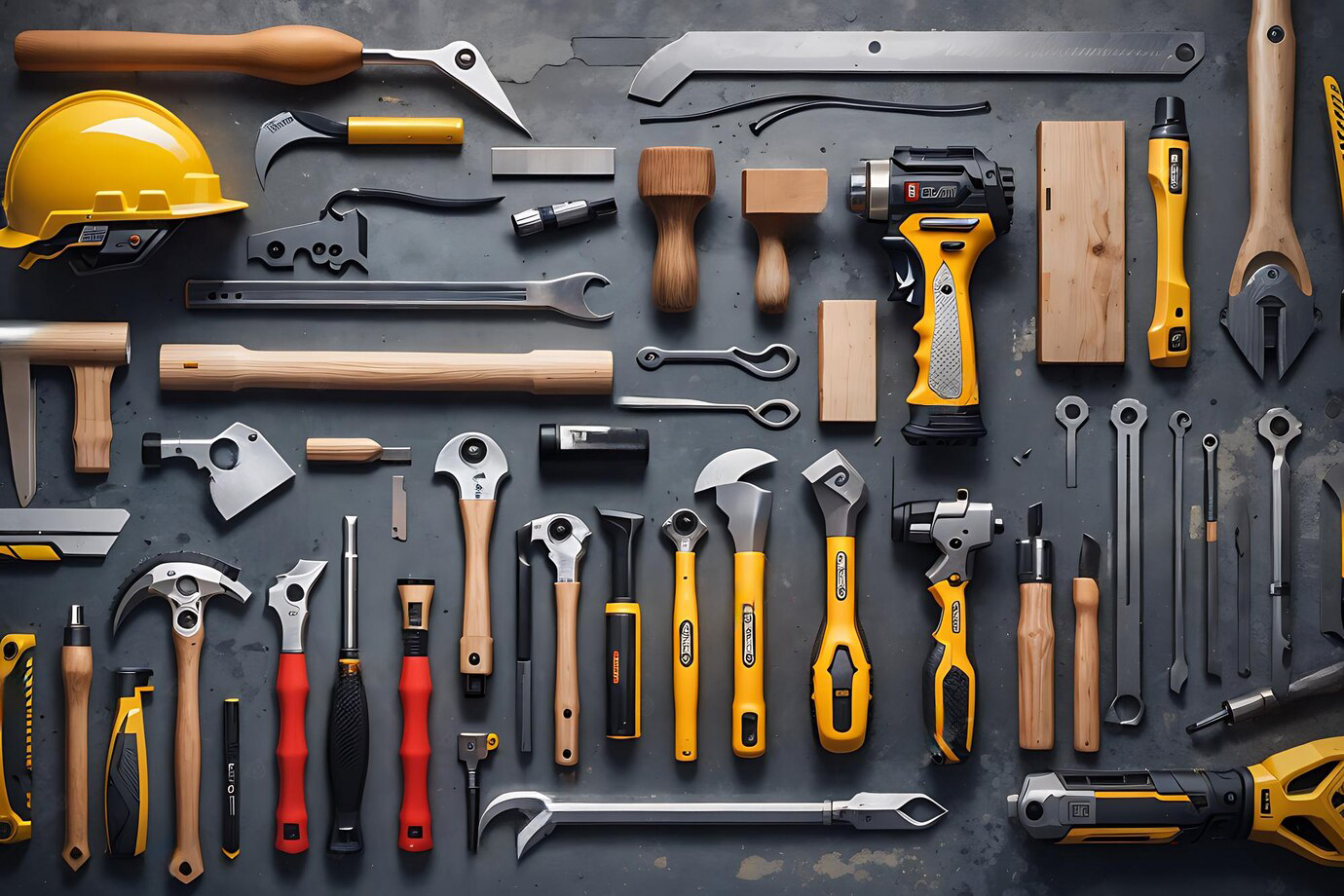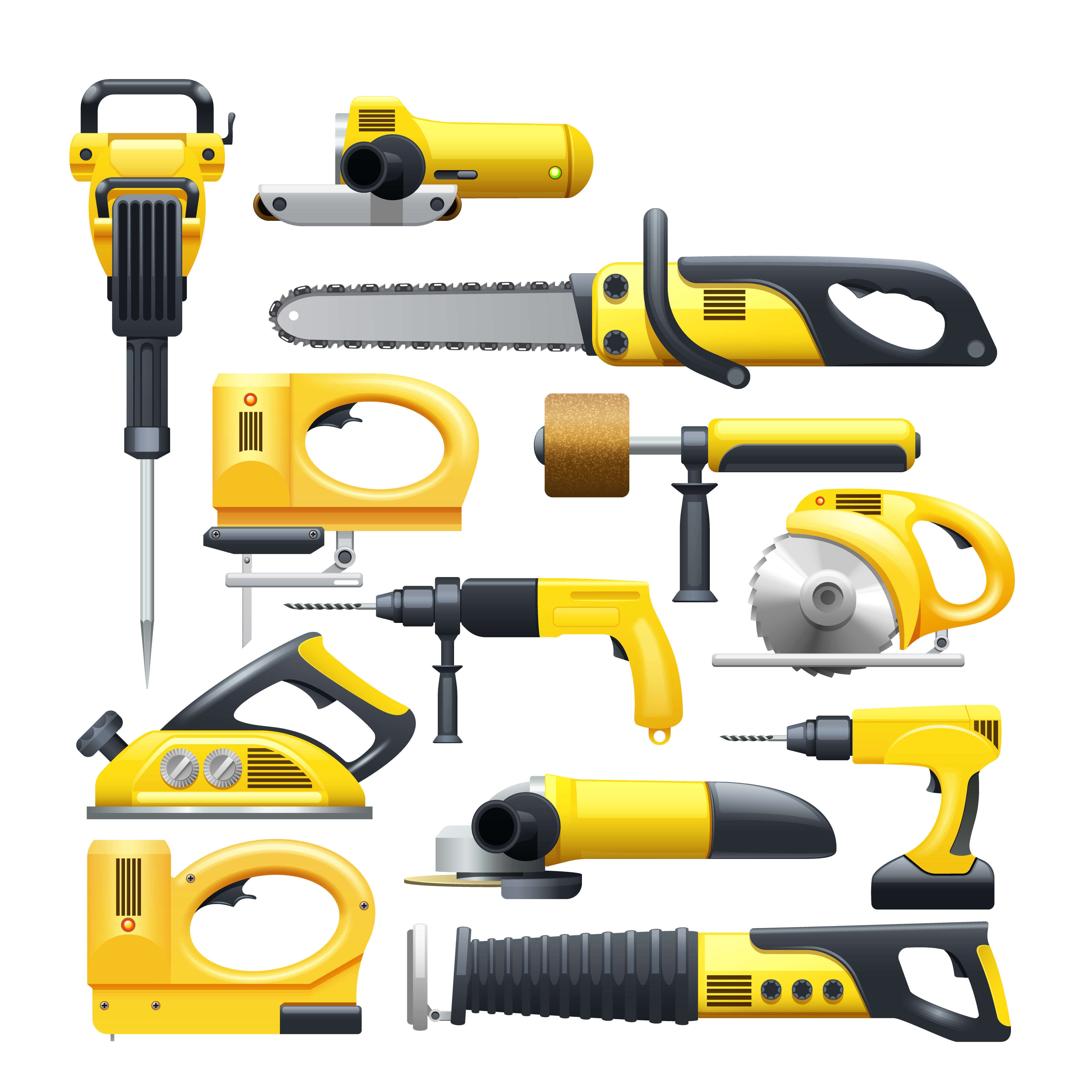hardware tool wholesale

Introduction
The hardware tool wholesale industry is a dynamic sector that plays a pivotal role in the global economy. This article delves into the intricacies of hardware tool wholesale, emphasizing its significance in the broader business landscape.
The hardware tool wholesale industry is a multifaceted realm where businesses engage in the procurement and distribution of tools, equipment, and machinery on a large scale. It is a linchpin in the supply chain, acting as a bridge between manufacturers and retailers, facilitating the seamless flow of goods and services.
Hardware tool wholesalers are the unsung heroes of the industry, responsible for ensuring that the right tools reach the right hands, be it construction professionals, DIY enthusiasts, or industrial manufacturers. Their operations are a testament to efficiency and precision, underpinning the success of countless ventures.
Wholesale constitutes the lifeblood of the hardware tool business, providing a vital artery for the circulation of goods. Let's explore why wholesale is of paramount importance in this industry.
Understanding Hardware Tool Wholesale
1: Definition of Hardware Tool Wholesale
Hardware tool wholesale refers to the process of purchasing tools and equipment in bulk quantities and subsequently distributing them to retailers, contractors, and other end-users. It is a strategic practice that streamlines the supply chain, optimizing cost-effectiveness and ensuring the availability of essential tools where and when they are needed.
In essence, hardware tool wholesale is the nucleus that powers the hardware tool ecosystem, ensuring a steady inflow of diverse products into the market. This ecosystem includes hand tools, power tools, fasteners, abrasives, safety equipment, and a myriad of other essential items that support various industries.
What Does Hardware Tool Wholesale Entail?
Hardware tool wholesale encompasses an array of activities that go beyond mere buying and selling. It involves meticulous inventory management, quality control, and adherence to industry standards. Wholesalers must maintain robust relationships with manufacturers and retailers to foster a seamless flow of products.
Key Components of Hardware Tool Wholesale
The key components of hardware tool wholesale are manifold:
- Product Sourcing: Wholesalers must identify reliable manufacturers and suppliers to source high-quality hardware tools. This entails rigorous research and negotiation to secure favorable terms.
- Inventory Management: Efficient management of inventory is crucial to ensure that the right tools are available in the right quantities. This involves forecasting demand, handling warehousing, and optimizing stock levels.
- Quality Assurance: Hardware tool wholesalers must uphold stringent quality standards to guarantee the reliability and safety of the products they distribute. This often involves conducting quality checks and audits.
- Logistics and Distribution: The logistics and distribution aspect of wholesale involves devising efficient shipping and delivery systems. Timely delivery is vital to meet the demands of retailers and end-users.
2: The Wholesale Supply Chain
The hardware tool wholesale supply chain is a finely tuned orchestra, with each member playing a distinct role. Let's unravel the intricacies of this supply chain.
Role of Manufacturers
Manufacturers are the genesis of the hardware tool supply chain. They conceive, design, and produce a diverse range of tools and equipment. Their expertise in engineering and innovation is the bedrock upon which the entire industry rests. Manufacturers must not only create reliable and high-quality products but also ensure that they are cost-effective to produce in large quantities.
Role of Distributors
Distributors, also known as wholesalers, occupy a pivotal position in the hardware tool supply chain. They act as intermediaries between manufacturers and retailers. Distributors purchase hardware tools in bulk, often at discounted rates, and then distribute them to retailers across diverse geographic regions.
Distributors are the logistical experts of the supply chain, responsible for warehousing, inventory management, and transportation. They must maintain an extensive network of retailers, ensuring that hardware tools reach local markets efficiently.
Role of Retailers
Retailers are the final link in the hardware tool supply chain. They are the storefronts where end-users, such as construction professionals and DIY enthusiasts, procure their tools. Retailers play a crucial role in understanding local demand and ensuring that a wide variety of hardware tools are readily available to cater to diverse needs.
In essence, the hardware tool wholesale industry is a well-oiled machine driven by manufacturers, distributors, and retailers working in harmony. This symbiotic relationship ensures that the hardware tools required for building, repairing, and innovating are readily accessible to those who need them.

Advantages of Buying Hardware Tools Wholesale
When it comes to procuring hardware tools for your business or personal needs, there's a compelling case to be made for buying wholesale. This article explores the myriad advantages of purchasing hardware tools in bulk, ranging from substantial cost savings to a staggering array of product variety.
1: Cost Savings
How Buying Wholesale Can Save Money
The foremost advantage of buying hardware tools wholesale is the substantial cost savings it offers. Wholesalers typically provide products at significantly lower prices compared to retail outlets. This pricing strategy hinges on economies of scale, as wholesalers deal in large quantities, allowing them to negotiate lower per-unit costs with manufacturers.
Examples of Cost-Effective Purchasing
Consider, for instance, a construction company in need of a bulk purchase of high-quality hammers. Buying these tools individually from a retail store could prove financially draining. However, by sourcing them wholesale, the same company can secure a substantial quantity at a considerably reduced per-unit cost, thus optimizing its budget for other essential expenditures.
2: Product Variety
Wide Range of Hardware Tools Available in Wholesale
The sheer diversity of hardware tools available in wholesale is staggering. Wholesalers typically stock an extensive inventory of tools, catering to a broad spectrum of industries and applications. Whether you require hand tools, power tools, fasteners, or specialized hardware accessories, the wholesale market has you covered.
How Variety Benefits Businesses
Variety is not just a luxury; it's a strategic advantage for businesses. When you purchase hardware tools wholesale, you gain access to a vast selection, ensuring that you can find precisely the tools that align with your specific needs. This versatility empowers businesses to adapt to evolving project requirements and explore new avenues of productivity.

Types of Hardware Tools Available in Wholesale
To appreciate the full scope of hardware tools available in the wholesale market, it's essential to categorize them. Here, we delve into three primary categories: hand tools, power tools, and fasteners/hardware accessories.
1: Hand Tools
Overview of Hand Tools Available in Wholesale
Hand tools, the stalwarts of the toolbox, are indispensable for a multitude of tasks. In the wholesale realm, an extensive array of hand tools awaits, from wrenches and pliers to screwdrivers and tape measures. Each type serves a distinct purpose, making them indispensable assets for professionals and DIY enthusiasts alike.
Common Types and Applications
Within the realm of hand tools, some common types include adjustable wrenches, used for tightening or loosening bolts, and claw hammers, ideal for driving nails and extracting them. Screwdrivers, with their various heads, are versatile instruments for manipulating screws of diverse types.
2: Power Tools
Overview of Power Tools Available in Wholesale
Power tools, driven by electricity or battery power, pack a punch when it comes to efficiency and performance. Wholesale suppliers offer an extensive range of power tools, including drills, saws, sanders, and grinders, to name a few. These tools are sought after for their ability to tackle heavy-duty tasks with ease.
Popular Brands and Models
Leading brands such as DeWalt, Makita, and Bosch dominate the power tool market. In the wholesale arena, you'll find an assortment of models and specifications to cater to various projects and preferences. Investing in wholesale power tools allows professionals to access top-tier equipment without breaking the bank.
3: Fasteners and Hardware Accessories
Types of Fasteners and Accessories in the Wholesale Market
Fasteners and hardware accessories are the unsung heroes of construction and maintenance. Wholesale suppliers offer an impressive selection of screws, nuts, bolts, anchors, and more. These items are indispensable for securing structures, fastening components, and ensuring the integrity of various projects.
Importance in Construction and Maintenance
Fasteners and hardware accessories play a pivotal role in the stability and durability of structures. Whether you're building a skyscraper or assembling a piece of furniture, having access to a comprehensive range of fasteners and accessories is essential for ensuring the safety and longevity of your work.
In conclusion, the advantages of buying hardware tools wholesale are multifaceted. From cost savings to an extensive variety of tools, the wholesale market empowers businesses and individuals to make informed, budget-conscious decisions while accessing an impressive array of tools and equipment to fuel their endeavors. Whether you're a professional contractor or a DIY enthusiast, the wholesale market is your gateway to efficiency and affordability in the world of hardware tools.

Finding the Right Wholesale Supplier
In the realm of commerce, the choice of a wholesale supplier can be a make-or-break decision for businesses of all sizes. Whether you're a retail entrepreneur seeking merchandise or an industrialist in need of raw materials, finding the right wholesale supplier is a critical step toward success.
1: Researching Wholesale Suppliers
Where to Find Potential Suppliers
The quest for a reliable wholesale supplier often begins with extensive research. There are various avenues to explore:
- Trade Shows and Expositions: Attending industry-specific trade shows and exhibitions can be a goldmine of networking opportunities. Suppliers often showcase their products and services, providing an excellent opportunity for face-to-face interactions.
- Online B2B Marketplaces: In the digital age, B2B marketplaces like Alibaba, Besstsuppliers, and Global Sources serve as vast repositories of wholesale suppliers. These platforms offer a diverse array of suppliers from around the globe, complete with profiles, product listings, and customer reviews.
- Industry Associations: Many industries have dedicated associations that maintain directories of reputable suppliers. These associations can provide valuable insights and recommendations.
Factors to Consider When Choosing a Supplier
Selecting the right wholesale supplier requires a discerning eye and careful consideration of various factors:
- Product Quality: Assess the quality of the products or materials offered by the supplier. Quality assurance is paramount to maintaining your reputation and customer satisfaction.
- Reliability: Evaluate the supplier's track record for reliability. Consistency in delivering orders on time is essential for your business operations.
- Pricing and Terms: Compare pricing structures and payment terms among potential suppliers. Ensure that the cost aligns with your budget and profit margins.
- Location and Logistics: Consider the supplier's proximity to your business. A closer supplier can often reduce shipping costs and delivery times.
2: Evaluating Supplier Reliability
Assessing Supplier Reputation and Track Record
Supplier reliability is the cornerstone of a successful business partnership. To assess this reliability, delve into the supplier's reputation and track record:
- Customer References: Seek references from other businesses that have dealt with the supplier. Their experiences can provide invaluable insights into the supplier's performance.
- Online Reviews: Scour online platforms for reviews and ratings of the supplier. Pay attention to both positive and negative feedback to gauge the overall satisfaction of previous clients.
- Certifications and Compliance: Ensure that the supplier complies with industry standards and regulations. Certifications like ISO 9001 demonstrate a commitment to quality.
- Importance of Reliable Delivery and Quality
- Reliable delivery and consistent product quality are paramount in the wholesale arena:
- Customer Satisfaction: Timely deliveries and high-quality products are key to keeping your customers satisfied. A single delivery mishap can tarnish your reputation.
- Operational Efficiency: A reliable supplier ensures that your supply chain operates smoothly, reducing the risk of production delays or stockouts.
- Cost Control: Consistency in quality minimizes the need for costly rejections or returns, ultimately optimizing your costs.
Negotiating Wholesale Deals
The negotiation phase is where the groundwork for a successful partnership is laid. Here's a closer look at two crucial aspects of wholesale deal negotiation:
1: Price Negotiation
Strategies for Negotiating Favorable Prices
Negotiating favorable prices is an art form that requires finesse and preparation:
- Volume Discounts: Leverage the advantage of bulk purchasing to secure volume discounts. Suppliers often offer reduced prices for larger orders.
- Long-Term Commitment: Consider entering into long-term contracts or agreements to secure better pricing over time.
- Competitive Bidding: If feasible, pit multiple suppliers against each other in a competitive bidding process. This can drive prices down.
2: Contractual Agreements
The Significance of Formal Contracts in Wholesale
In the wholesale realm, formal contracts are more than just paperwork; they are essential safeguards:
- Terms and Conditions: Contracts outline crucial terms and conditions, such as pricing, delivery schedules, quality standards, and dispute resolution procedures.
- Legal Protection: Contracts protect your business interests by providing legal recourse in case of disputes or breaches of agreement.
- Clarity: Contracts bring clarity and transparency to the business relationship, ensuring that both parties are on the same page regarding expectations and obligations.
In conclusion, the journey of finding the right wholesale supplier is a multifaceted process that demands meticulous research and negotiation prowess. A well-chosen supplier can be a strategic partner in your business endeavors, contributing to your success through reliable deliveries, quality products, and mutually beneficial agreements. Therefore, take the time to assess potential suppliers, evaluate their reliability, and master the art of negotiation to forge enduring and prosperous business relationships.

Quality Assurance in Hardware Tool Wholesale
In the dynamic world of hardware tool wholesale, ensuring the quality of products is not just a priority but a mission-critical endeavor. Let's delve into the meticulous realm of quality assurance, exploring the measures taken to maintain top-tier product quality and how to address issues when they arise.
1: Quality Control Measures
Ensuring the Quality of Wholesale Hardware Tools
Quality control in hardware tool wholesale involves a multifaceted approach aimed at guaranteeing the excellence of every product that passes through the supply chain:
- Supplier Audits: Conduct thorough audits of suppliers to evaluate their quality control procedures. This involves scrutinizing their manufacturing processes, quality standards, and adherence to industry regulations.
- Product Inspection: Implement rigorous product inspection protocols at various stages of the supply chain. This includes visual inspections, measurements, and functional testing to identify defects or deviations from specifications.
- Certifications and Standards: Ensure that hardware tools meet industry-specific certifications and standards. These benchmarks serve as a guarantee of quality and safety.
2: Dealing with Defective Products
How to Handle and Resolve Issues with Subpar Items
Despite stringent quality control measures, the occasional defective product may slip through. Knowing how to address such issues is paramount:
- Return Procedures: Establish clear return procedures with suppliers. In the event of a defective product, a well-defined return process ensures swift resolution.
- Replacement Protocols: Have mechanisms in place for the seamless replacement of defective items. Timely replacement minimizes disruptions in operations.
- Root Cause Analysis: Conduct root cause analyses to identify the source of defects. This proactive approach can help prevent similar issues in the future.

Logistics and Distribution
In the wholesale hardware tool industry, logistics and distribution are the arteries that keep the supply chain flowing smoothly. Here, we explore the importance of efficient warehousing and shipping methods.
1: Efficient Warehousing
Importance of Proper Storage and Organization
Warehousing is not merely about storage; it's about optimizing space, preserving product quality, and facilitating efficient order fulfillment:
- Storage Optimization: Implement efficient storage systems such as rack and bin systems to maximize space utilization.
- Climate Control: Depending on the nature of hardware tools, climate-controlled storage may be necessary to prevent degradation due to temperature or humidity fluctuations.
- Inventory Management Systems: Invest in advanced inventory management systems that provide real-time data on stock levels, facilitating accurate order fulfillment.
2: Shipping and Delivery
Options for Shipping Wholesale Hardware Tools
The mode of shipping and delivery can significantly impact the efficiency and cost-effectiveness of the wholesale hardware tool supply chain:
- Freight Options: Choose appropriate freight options, whether it's ground shipping, air transport, or ocean freight, based on cost, urgency, and product volume.
- Tracking Systems: Utilize tracking systems to monitor the movement of goods in real time. This enables you to provide accurate delivery estimates to customers.
- On-Time Delivery: Timely delivery is non-negotiable in the wholesale industry. Ensure that shipments reach their destination as promised to avoid disruptions downstream.
In conclusion, quality assurance in hardware tool wholesale is a meticulous process that encompasses supplier audits, inspection protocols, and adherence to industry standards. When defects arise, a well-structured return and replacement process ensures swift resolution. Efficient warehousing and strategic shipping options are equally critical, optimizing storage and ensuring the timely delivery of wholesale hardware tools. In this fast-paced industry, meticulous attention to quality and logistics is the bedrock upon which successful wholesale operations are built.

Marketing and Selling Wholesale Hardware Tools
In the intricate world of wholesale hardware tools, success hinges on the ability to effectively market and sell products. This article delves into the art of identifying your target audience, building lasting customer relationships, and addressing the unique challenges faced in this industry.
1: Target Audience Identification
Identifying Potential Customers and Markets
In the wholesale hardware tools sector, precision is key when identifying your target audience and potential markets:
- Market Segmentation: Divide your potential customer base into segments based on criteria such as industry type, location, and purchasing behavior. This helps tailor your marketing efforts.
- B2B or B2C: Determine whether your wholesale hardware tools primarily serve businesses (B2B) or individual consumers (B2C). Each category requires a distinct marketing approach.
- Niche Markets: Explore niche markets within the broader industry. For example, specialized tools for the aerospace industry cater to a distinct audience with unique needs.
- Tailoring Your Marketing Efforts
- Once you've pinpointed your target audience, it's essential to customize your marketing strategies:
- Content Marketing: Craft informative content that showcases the utility and value of your hardware tools. This can include blog posts, video tutorials, or downloadable guides.
- Social Media Engagement: Utilize platforms like LinkedIn or industry-specific forums to connect with potential clients and engage in meaningful conversations.
- Email Campaigns: Develop targeted email campaigns to nurture leads and provide valuable insights into your products.
2: Building Customer Relationships
Strategies for Fostering Long-term Customer Loyalty
In wholesale hardware tool sales, cultivating enduring customer relationships is the linchpin of success:
- Exceptional Customer Service: Offer prompt and knowledgeable customer support to address inquiries and concerns. A responsive customer service team builds trust.
- Personalization: Tailor your interactions with customers based on their unique needs and preferences. Personalized recommendations and offers go a long way in fostering loyalty.
- Loyalty Programs: Implement loyalty programs that reward repeat customers. This can include discounts, exclusive offers, or early access to new products.
- Addressing Customer Concerns and Inquiries
- An open line of communication is vital in addressing customer inquiries and concerns:
- Prompt Response: Respond to customer inquiries promptly, preferably within 24 hours. Delays can lead to frustration and lost opportunities.
- Transparency: Be transparent about product specifications, pricing, and delivery times. Honesty builds credibility.
- Feedback Mechanisms: Encourage customer feedback and act on it. This shows that you value their opinions and are committed to continuous improvement.
3: Competition
Dealing with Market Competition and Pricing Pressure
Competition in the hardware tool wholesale industry can be fierce. To stand out, consider these strategies:
- Value-Added Services: Offer services such as customization, tool maintenance, or training to differentiate your business.
- Quality Emphasis: Highlight the quality and reliability of your products. Quality assurance can justify premium pricing.
- Diversification: Explore new product lines or niches to reduce dependency on a single market segment.
4: Market Trends and Innovation
Staying Updated with Industry Trends
In an industry marked by constant evolution, staying updated with trends and embracing innovation is imperative:
- Market Research: Continuously monitor market trends and customer preferences. This insight informs product development and marketing strategies.
- Technological Advancements: Embrace technological innovations, such as e-commerce platforms, digital marketing tools, and automated inventory management, to streamline operations and enhance customer experience.
- Sustainability Initiatives: Consider eco-friendly product options and sustainable practices, as environmental consciousness increasingly influences purchasing decisions.
In conclusion, marketing and selling wholesale hardware tools require a strategic approach that involves identifying the right audience, building lasting customer relationships, and addressing industry-specific challenges. By tailoring your marketing efforts, offering exceptional customer service, and staying abreast of market trends, your wholesale hardware tool business can thrive in a competitive landscape while meeting the evolving needs of your clients.

Future of Hardware Tool Wholesale
The hardware tool wholesale industry, with its robust history and essential role in commerce, stands on the cusp of transformation. In this article, we delve into the projections for the future of hardware tool wholesale, exploring growth opportunities and the imperative shift toward sustainability.
1: Industry Growth Projections
Predictions for the Future of Hardware Tool Wholesale
The hardware tool wholesale sector is poised for substantial growth in the coming years. Several key factors contribute to these promising projections:
- Global Infrastructure Development: As infrastructure projects continue to burgeon worldwide, the demand for hardware tools is expected to soar. From construction to manufacturing, the tools of the trade will be in high demand.
- E-commerce Expansion: The proliferation of e-commerce platforms is reshaping the wholesale landscape. Online marketplaces facilitate streamlined transactions, making it easier for wholesalers to reach a global customer base.
- Technological Advancements: Automation and digitalization are enhancing efficiency in the supply chain. This not only reduces operational costs but also expedites order fulfillment, benefiting both wholesalers and customers.
- Emerging Markets and Opportunities
- The future of hardware tool wholesale lies in emerging markets and untapped opportunities:
- Asia-Pacific Ascendancy: The Asia-Pacific region, with its burgeoning construction and manufacturing sectors, is set to become a powerhouse for hardware tool demand. Wholesalers who establish a presence in this market can expect substantial growth.
- Renewable Energy Boom: With the global push toward renewable energy sources, the hardware tools required for solar and wind energy installations will be in high demand. Wholesalers who diversify into this sector stand to reap substantial rewards.
Smart Tools and IoT Integration: The integration of Internet of Things (IoT) technology into hardware tools is on the horizon. These smart tools offer real-time monitoring and data collection capabilities, revolutionizing how they are used and maintained.
2: Sustainability and Eco-Friendly Practices
Importance of Sustainability in the Wholesale Industry
The hardware tool wholesale industry is at a crossroads where sustainability is no longer an option but a necessity:
- Environmental Responsibility: Customers are increasingly conscious of environmental impact. Wholesalers must adopt sustainable practices to meet these expectations.
- Regulatory Compliance: Stringent environmental regulations are emerging worldwide. Staying compliant is crucial to avoiding legal issues and maintaining a reputation.
- Market Demand: Eco-conscious consumers are actively seeking environmentally friendly products. Wholesalers who offer sustainable options gain a competitive edge.
- Eco-Friendly Hardware Tool Options
- The future of hardware tool wholesale is intrinsically tied to eco-friendly product offerings:
- Biodegradable Materials: Tools made from biodegradable materials are gaining traction. These tools decompose naturally, reducing long-term environmental impact.
- Energy-Efficient Tools: Tools designed for energy efficiency help reduce power consumption, contributing to sustainability goals.
- Recyclable Packaging: Sustainable packaging not only reduces waste but also appeals to environmentally conscious customers.
Conclusion
The future of hardware tool wholesale is a promising landscape characterized by global expansion, technological innovation, and an emphasis on sustainability. As the industry continues to evolve, wholesalers who strategically tap into emerging markets, diversify into renewable energy sectors, and prioritize eco-friendly practices are poised for growth and relevance.
In conclusion, we encourage readers to explore the myriad opportunities presented by the hardware tool wholesale industry. By staying attuned to industry trends, embracing sustainability, and catering to evolving customer preferences, wholesalers can thrive in a dynamic and ever-expanding market. The future is bright for those who dare to seize it in the world of hardware tool wholesale.

